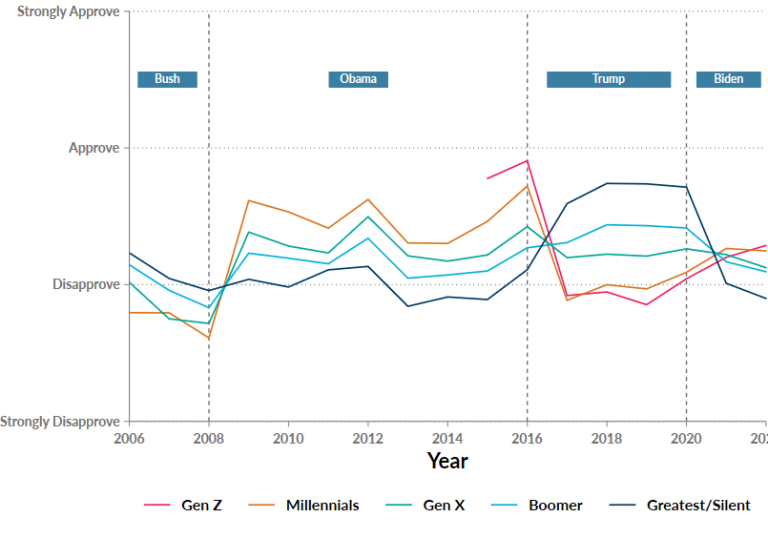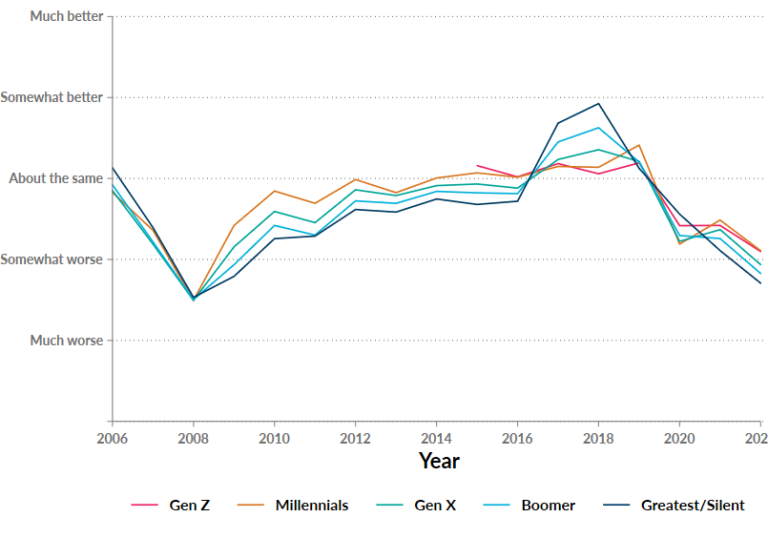Berkeley News, February 2024
In October 2020, just a few weeks before the U.S. presidential election, global pop hyper-star Taylor Swift issued a brief, carefully worded statement endorsing Joe Biden and Kamala Harris. The Democratic nominees, Swift said, recognized “that people of color deserve to feel safe and represented, women deserve the right to choose what happens to their bodies, and that the LGBTQIA+ community deserves to be acknowledged and included.”
Few campaign endorsements are remembered nearly four years later. But this one aligned almost perfectly with the core values of Millennials and Gen Z, say the leaders of the UC Berkeley Institute for Young Americans, and it still offers a lens onto how young voters will swing this fall.










